Difficulty sliders are dumb
Yesterday I caught myself thinking fondly of Aliens: Dark Descent. A game I quit half way through due to being too nail bitingly difficult. It’s my own fault, I cranked up the difficulty when starting the game, and there was no difficulty slider to adjust mid-campaign - so I just gave up after a particularly difficult set of encounters.
This got me thinking about difficulty in games, and how I often struggle to fine tune my experience the right way.
I generally dislike difficulty sliders with a passion. I haven’t played your game yet, how am I supposed to know how I should be playing it? You tell me!
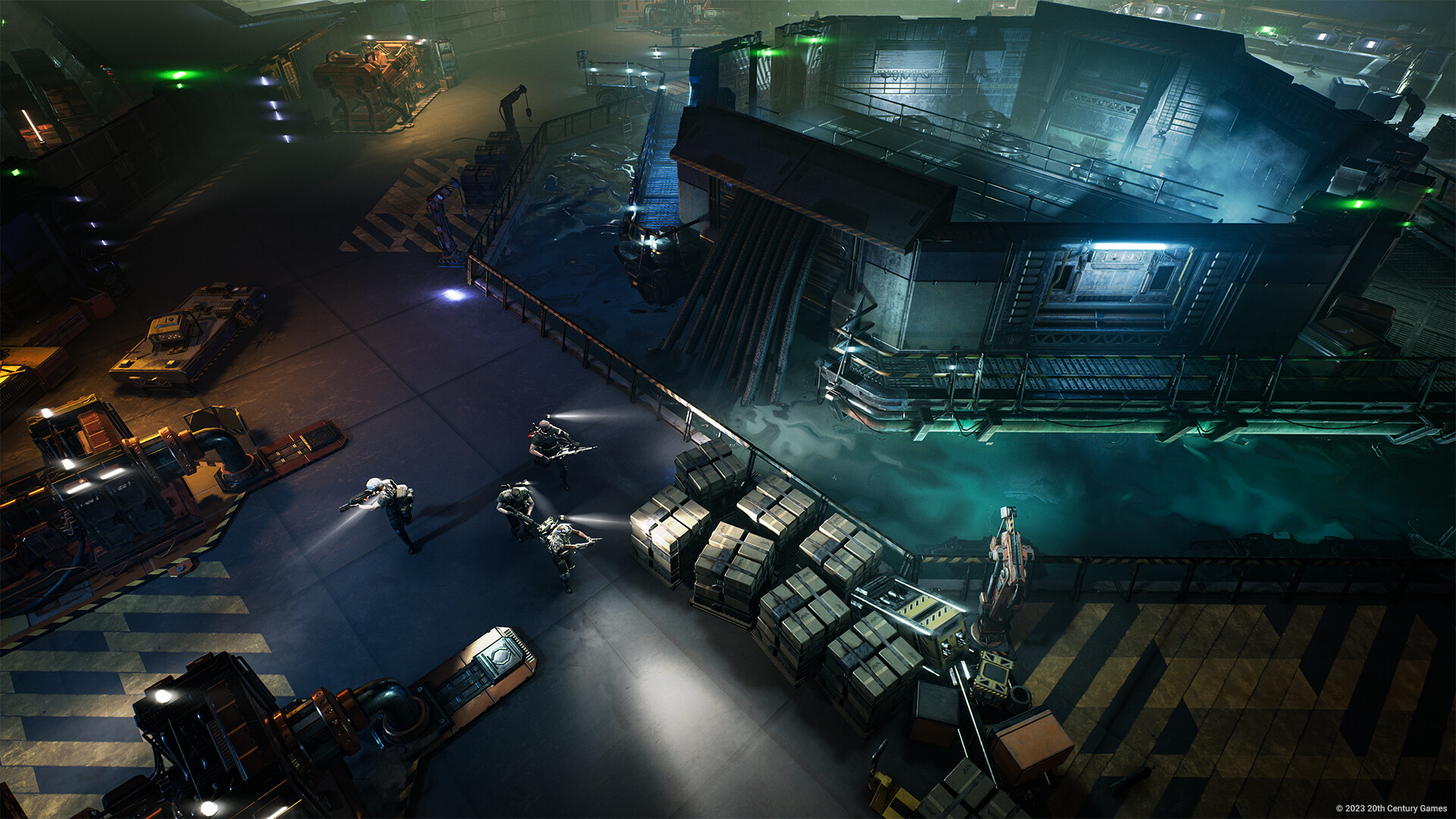 Aliens: Dark Descent is a tense, tactical, and intense experience: but I made it too difficult for myself.
Aliens: Dark Descent is a tense, tactical, and intense experience: but I made it too difficult for myself.
Now, I understand that not all players have an equal level of skill or familiarly with the medium, and that’s a major challenge for game designer. Give a person who has never played a game before a controller, and you’ll see how confused they’ll get by a 3D camera. That’s why we still need the “use WASD to move and camera to look around” pop-ups in every game.
But by exposing difficulty sliders and fine tuning controls, the game looses shared context. Defeating Ornstein and Smough in Dark Souls was just as difficult for me as it was for you - and this creates shared context, shared experience, and strengthens online communities. If for one player the fight’s trivial, and for another impossible to beat - it’s hard to connect over the experience.
This is why games like Old School RuneScape are still thriving - I recently picked up RuneScape to see what all the hype is about. It’s a slow, grindy, methodical experience, where every victory takes hours of gameplay and feels earned. And that seems to be a shared experience among the players - leveling a skill to 99 is just as hard for you as it is for me, and you know the blood, sweat, and tears that went into the character. I think that’s one of the big reasons Old School RuneScape is still popular - it’s not much of a game, and it’s not even that fun - but there’s so much shared context around playing it that community is naturally able to connect over shared experiences.
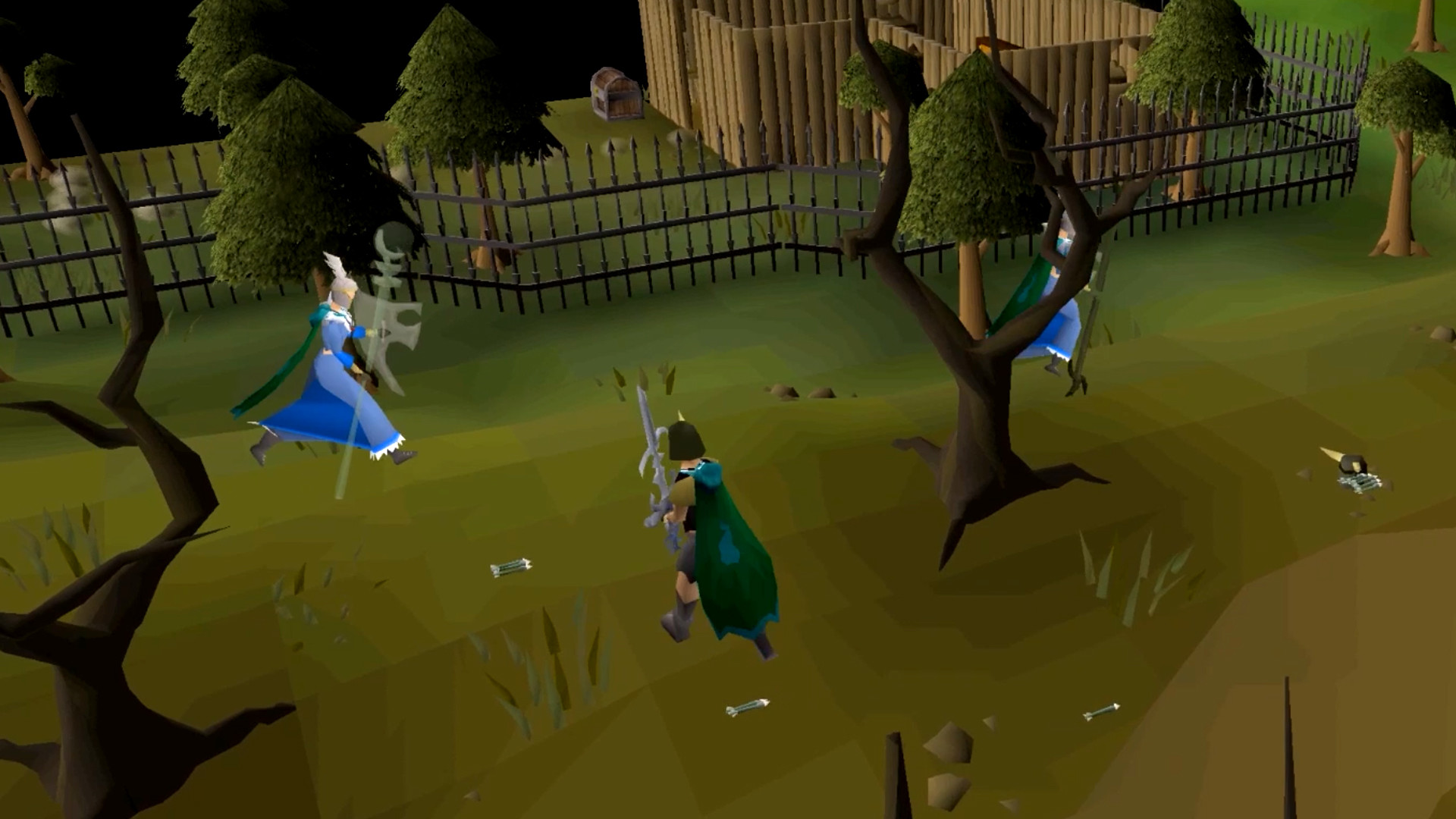 Old School RuneScape: it’s about the fact that every player had to endure the same, grindy, and a little boring journey.
Old School RuneScape: it’s about the fact that every player had to endure the same, grindy, and a little boring journey.
In my beloved darling Total War: Warhammer, difficulty sliders can be even more misleading for new players. If you don’t know, Total War: Warhammer is a turn-based and real time strategy hybrid. You march your armies around the world map and build up settlements through turn based gameplay, like you would in titles like Civilization, and fight battles in real time. Combat oriented factions like Khorne or Beastmen become harder to play on easier campaign difficulties, as easier difficulties reduce number of enemy armies - something that these factions rely on defeating to progress.
Battle difficulty sliders can have an unindented effect too: in Total War: Warhammer, you can skip a real-time battle by using the autoresolve feature - which weighs your army against enemy’s. This weighing is influenced by battle difficulty: the easier the difficulty is, the more likely you are to win in autoresolve. But here’s the problem - “easy” autoresolve would often do better than a new player fighting the battle themselves, which is discouraging. Why would I play through a battle only for a worse result?
Back to Aliens: Dark Descent. I often find myself cranking up the difficulty slider when the games offer it. I am a “gamer” after all, even if I don’t much care for Doritos and Mountain Dew. And turning down the difficulty later, even if possible, often feels like a defeat. I play games for fun, and no one will know what difficulty I play games on, but there’s a part of me that just doesn’t like the idea of giving up.
And then there’s the way these sliders are often implemented. Beefing up enemy health, and making the game more tedious rather than more dynamic or skill-based. Bethesda titles are famous for this. Harder shouldn’t force a player to play more conservatively. Harder difficulties should reward risk and skillful plays.
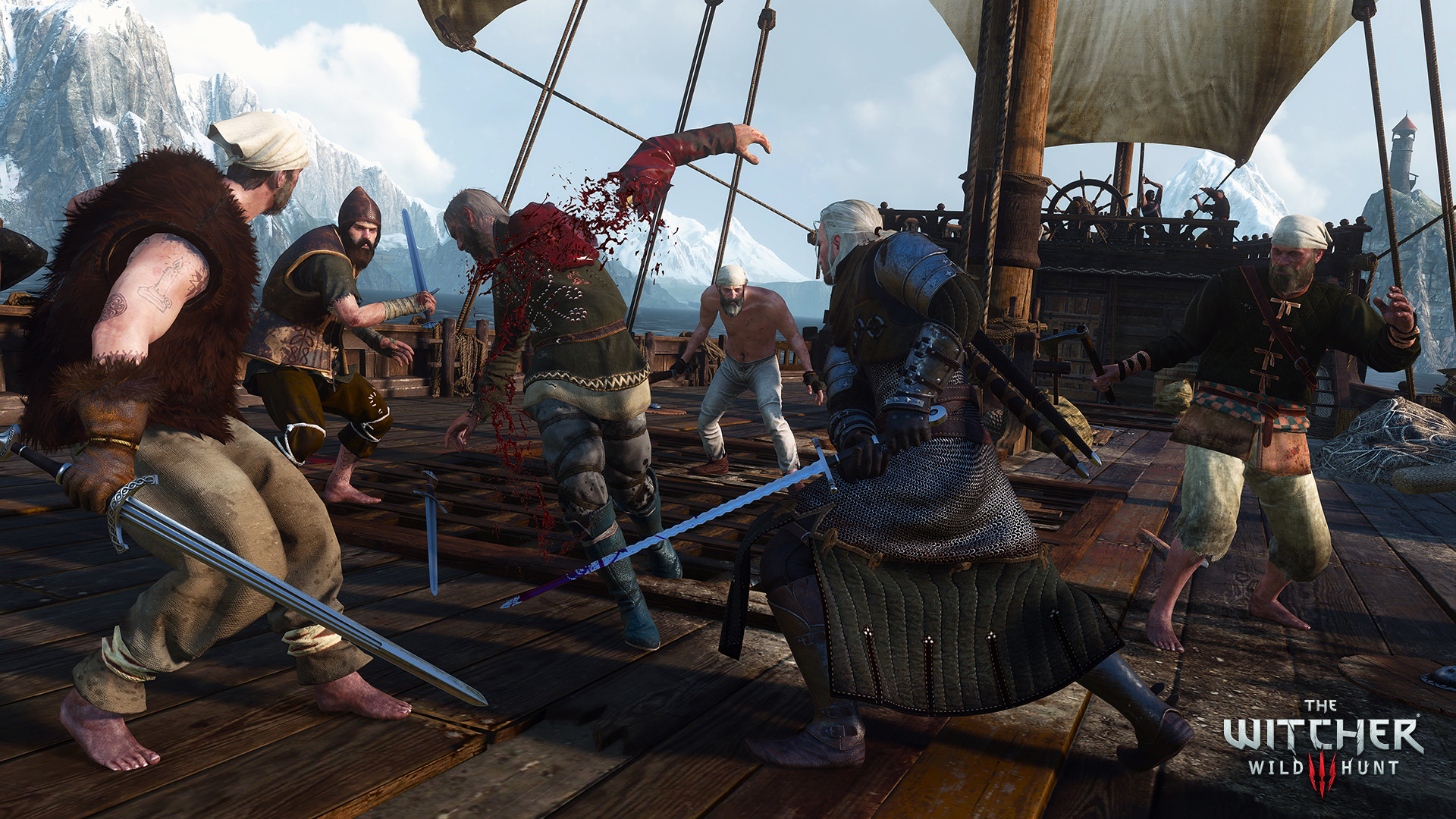 I feel like The Witcher 3: Wild Hunt’s deeply interconnected systems were designed to be played on Death March difficulty, but easier default options were offered to broaden the appeal of the game to a wider audience.
I feel like The Witcher 3: Wild Hunt’s deeply interconnected systems were designed to be played on Death March difficulty, but easier default options were offered to broaden the appeal of the game to a wider audience.
In a counter-example, I played all of Witcher 3 on Death March - and it felt like the difficulty the game was built for. Combat is visceral - Geralt would go down in a couple of hits, but so would the opponents. Enemy resistances are cranked all the way up, and initiating a fight without preparation - using the right oils, bombs, and signs - is a suicide. Here, Witcher 3 forces the player to engage with all of the game’s mechanics - or perish. Playing on lower difficulty makes the game feel like a kitchen sink of systems rather than a coherent experience. You could apply a specific oil to your weapon, or you can just click on a monster until it’s dead with little to no difference. And I think more people would enjoy Witcher 3 combat if they played on Death March.
I had a similar experience when replaying Baldur’s Gate III on higher difficulty in Ironman mode: all of a sudden all the consumables I hoarded throughout my first playthrough are necessary to keep my character alive. There’s no better moment to save up resources for - the moment is here!
Having sliders robs gamers of a more enriching experience which pushes them to engage with all of game’s mechanics.
And then there’s a question of accessibility too. Not everyone’s got two hands. Not everyone has the reflexes and fine motor control. Not everyone can see well.
My instinct here was that there’s a clear distinction between what’s needed for accessibility and what isn’t. But I think that instinct is wrong - disability is a spectrum, maybe your game being 10% easier is all it takes for someone to be able to enjoy it. I don’t really have a good answer here, but I want more people to be able to enjoy games, which makes me largely supportive of more options.
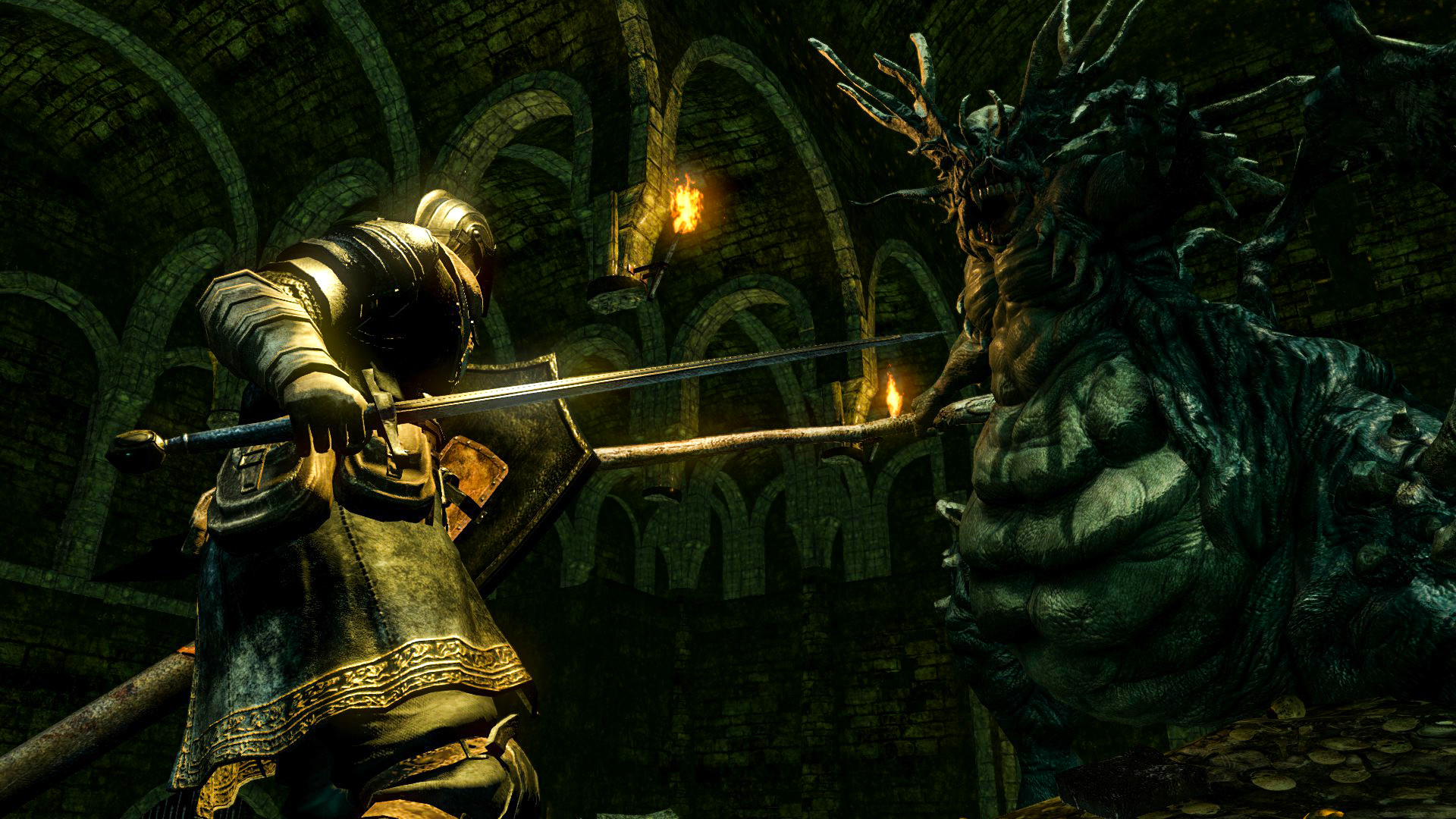 Dark Souls is a poster child for managing your own difficulty in a game through different character build options.
Dark Souls is a poster child for managing your own difficulty in a game through different character build options.
But hear me out, you don’t need out-of-game sliders that the player must commit to before they even know what your game’s like to play. There are many examples of games allowing you to control difficulty in-game.
Dark Souls is famous for this: melee options are more difficult than using magic. For even more difficulty, you can take off your armor - and this isn’t merely handicapping yourself either - being lighter increases your dodge roll speed, allowing skilled players to practice and express their skills.
Another Crab’s Treasure, a cheeky Souls-like, has an even more blunt option: if you find the game too hard and just want to experience the story, you can just get a gun to shoot all the bosses. Outside of being great because it’s so silly, this is a fantastic option: it’s a clearly labeled accessibility feature, and player continue to largely have a shared experience - using a gun skips a fight, and players who went through the fight all overcame the same foe.
You can also introduce optional challenges: Celeste, a 2D platformer I’m not very good at, has a plethora of optional challenges: you’ve got optional strawberries you can collect in each level, and there are hidden unlockables which allow you to play through much more difficult version of each level. An optional challenge skilled players can engage in and will be rewarded for finding.
Then there’s dynamic difficulty adjustment, most famous in Resident Evil 4. If you’re not aware, Resident Evil 4 (both the original and the remake) secretly keeps track of how effective you are at the game - how many shots you land, how much damage you deal, how much damage you take, which adjusts number and health pools of zombies, ammo availability, and other in-game mechanics. It’s a dynamic system which tailors itself to player’s skill, making the game just difficult enough. A struggling player will find more ammo drops and will find themselves surrounded by less enemies, while a skilled player might engage in more tense gameplay as they’re starting to run out of resources.
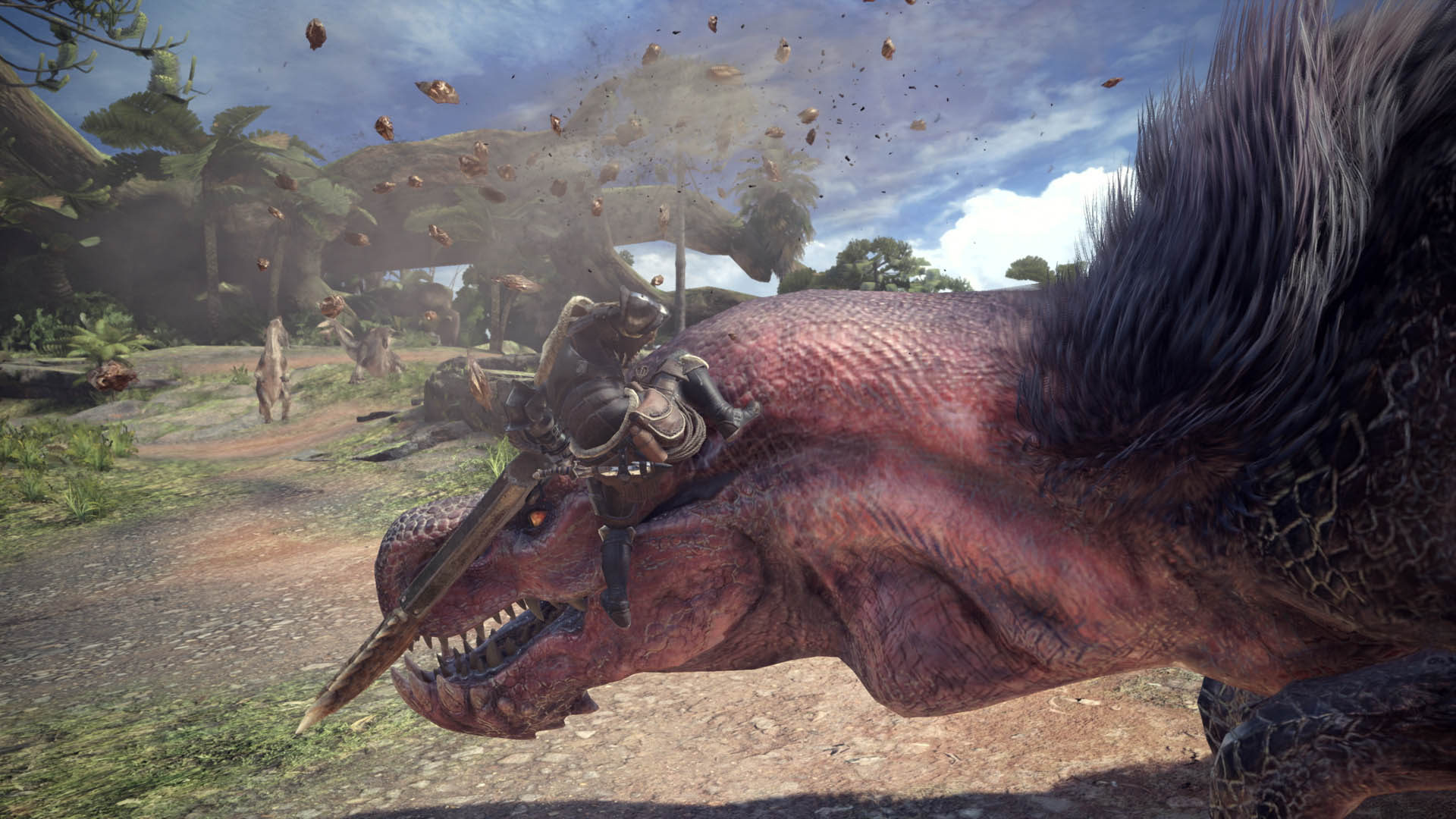 Base Monster Hunter: World game isn’t particularly hard, albeit grindy. You can make the experience more difficult by trying out more demanding combat styles.
Base Monster Hunter: World game isn’t particularly hard, albeit grindy. You can make the experience more difficult by trying out more demanding combat styles.
Horizontal progression is another option here. While in Monster Hunter series there’s a clear vertical progression when it comes to fighting more and more difficult monsters, you can control the game’s difficulty by choosing a different weapon set. Something like a sword-and-board or a greatsword playthrough doesn’t require that much from a player, while a notoriously difficult insect glaive allows more skilled players to chain together complex aerial attacks while also managing the kinsect - a little scarab which can drain energy from foes and grant various buffs. And even within each weapon set - there’s much to learn: you can finish the game by only mashing the attack and block buttons, but a skilled player would learn complex chained moves to defeat enemies significantly faster. And faster is the name of the game when it comes to grind-heavy games like Monster Hunter.
So yeah, pushing difficulty selection to a simple slider for the user to pick from is lazy. I think the best games trust the player to fine tune their own level of challenge. I don’t love having to select difficulty from menus - I’d rather fine tune my difficulty as I play, by engaging in challenging experiences or foregoing optional encounters. If Alien: Dark Descent offered opportunities to fine tune difficulty in-game - say, starting off moderately difficult and by allowing me to engage in optional challenges to increase the difficulty - I would’ve likely played it until the end.
If you enjoyed this article, you might also appreciate why do I like games I do not finish.
Comments
Respond directly on Bluesky (threads shown below) or Medium (view comments there).
 Rooslawn's Unmapped Worlds
Rooslawn's Unmapped Worlds